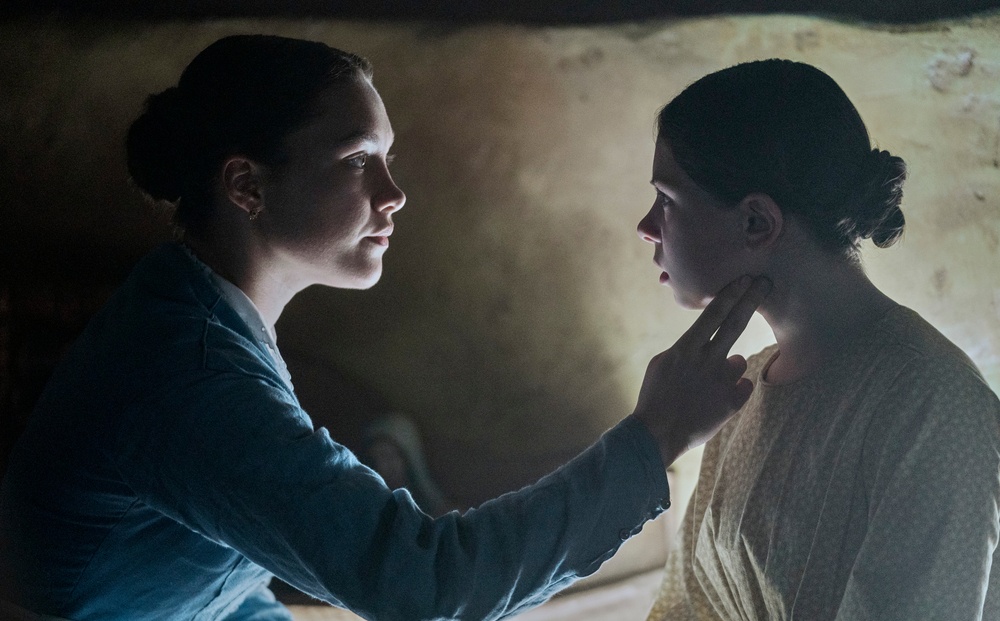The Wonder

Florence Pugh and Kíla Lord Cassidy star in THE WONDER. (Photo: Netflix)
Tension simmers beneath the surface of The Wonder, which incisively examines the convergence of science and religion while scrutinizing blind faith and belief systems.
Rising star Florence Pugh continues to showcase her versatility in this evocative if slightly muddled period drama from Chilean filmmaker Sebastian Lelio (Gloria Bell), which is a quietly powerful and deeply intriguing look at zealotry and oppression that nourishes both the eyes and the brain.
Set during the aftermath of the Great Famine in 19th century Ireland, the film takes place in a small village defined by muted emotions, repressed desires, and perpetual anguish among its residents.
Pugh plays Lib, a London nurse summoned by town leaders to investigate 10-year-old Anna (Kila Lord Cassidy), who apparently has been fasting for months. “I don’t need to eat,” the girl explains. “I live on manna from heaven.”
Lib’s role is merely “watching” Anna in rotation with a nun over a two-week span, after which she would report her findings to the elders.
Is she a sideshow freak or some sort of spiritual conduit? It seems most everyone has their mind made up, and naturally, it doesn’t mesh with what Lib uncovers. After all, the downtrodden town could sure use a miracle.
So the locals challenge the outsider’s skepticism, nobody more so than Anna’s devout mother (Niamh Algar). Lib is strong-willed yet open to doubting her own convictions and beliefs. A nosy journalist (Tom Burke) urges her to dig deeper.
As troubling background details are revealed, both about Lib and the villagers, The Wonder maintains a sense of mystery and intrigue amid a maze of conflicting motives — none of which seems particularly motivated in helping Anna.
A committed portrayal by Pugh (Don’t Worry Darling) balances strength and vulnerability, channeling our curiosity while providing a window into this world. Toby Jones and Ciaran Hinds are among those bringing depth to the periphery roles.
The exquisite period re-creation includes a visually striking depiction of a stark rural landscape of desolation and despair.
The screenplay, based on a novel by Emma Donoghue (Room), suffers from fluctuating narrative momentum as the film dances around its moral questions prior to the obligatory big reveal.
Still, the climax packs an emotional punch. And the deliberately paced film rewards patience while unafraid to challenge convention, just like its heroine.
Rated R, 108 minutes.